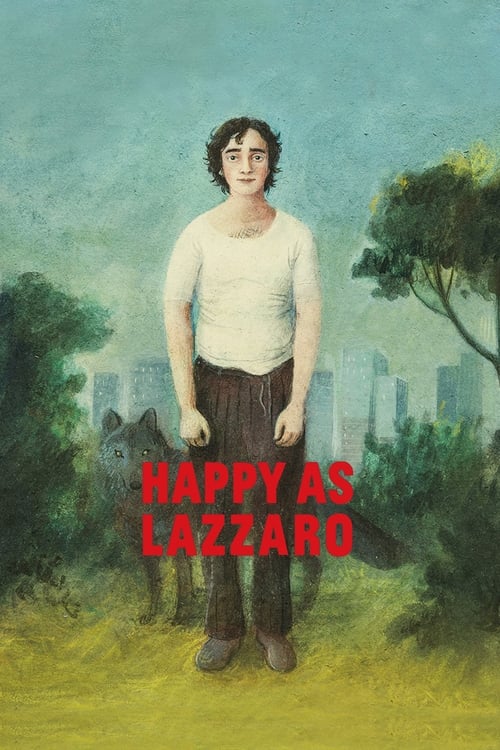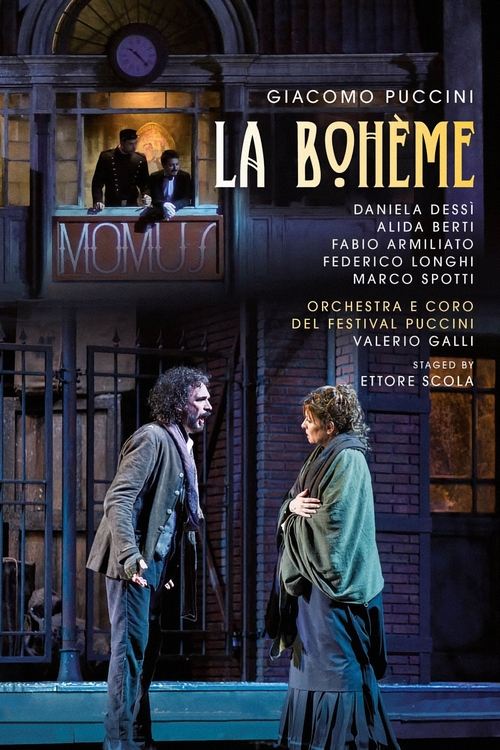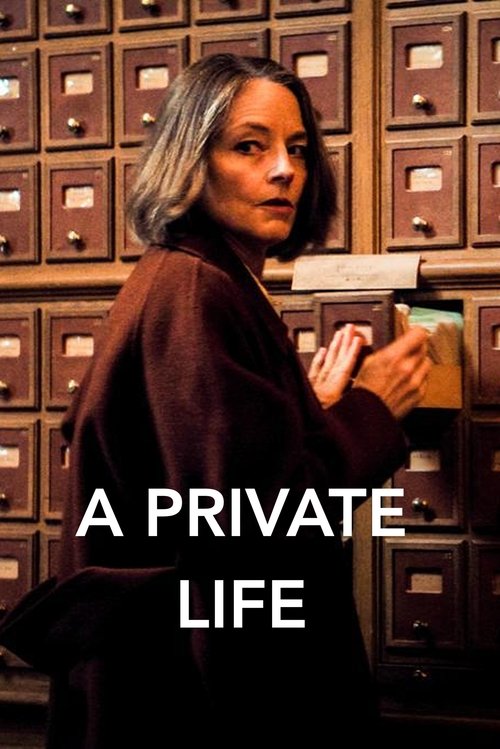
Ask Your Own Question
What is the plot?
Turin, 1969. The city is bathed in the soft, golden light of a late summer afternoon. Nine-year-old Massimo (Nicolò Cabras) sits at the window of his family's apartment, his eyes fixed on the distant outline of the Torino FC stadium. The air is thick with the scent of home-cooked food and the gentle hum of a television playing in the background. His mother, a woman whose presence radiates warmth and safety, tucks him into bed, her fingers brushing his hair as she whispers, "Fai bei sogni, Massimo. Sweet dreams." The words linger in the air, a promise of comfort, of love, of a world that feels unbreakable.
The next morning, the world shatters. Massimo wakes to a silence that feels unnatural, a stillness that chills his bones. His father, Guido (Guido Caprino), stands in the doorway, his face pale, his eyes avoiding Massimo's. "Your mother…" he begins, his voice cracking, "she's gone." The words hang in the air, incomprehensible. Massimo stares, uncomprehending, as his father turns away, unable to offer more. The priest arrives, his cassock rustling as he kneels beside Massimo. "She's in Heaven now," he says, his voice gentle but firm. "She's with God." Massimo shakes his head, tears streaming down his face. "No," he whispers, "she can't be gone. She promised me sweet dreams." The priest places a hand on his shoulder, but Massimo pulls away, his heart aching with a grief he cannot name.
The days that follow are a blur of confusion and pain. Massimo's mother's absence is a void that cannot be filled. Her belongings remain in the apartment, her perfume lingering in the air, her voice echoing in his memories. At school, the teachers speak of death in hushed tones, their words cloaked in religious platitudes. "She's in a better place," they say, but Massimo feels only emptiness. He turns to the television, to the French series about Belphégor, the phantom, that he and his mother used to watch together. In the darkness of his room, he whispers to the screen, "Belphégor, take me to her. Bring her back." The phantom's face flickers in the shadows, a symbol of the comfort he cannot find in the real world.
Massimo's relationship with his father grows strained. Guido, a man of few words, retreats into his own grief, his only connection to Massimo their shared love for Torino FC. On weekends, they sit together in the apartment, their eyes fixed on the television as the team plays. The stadium, visible from their window, becomes a symbol of their bond, a rare point of connection in a world that feels increasingly alien. But even here, the silence between them is heavy, unspoken words hanging in the air like ghosts.
As Massimo grows older, his grief becomes a constant companion. He struggles with his faith, with the religious explanations that offer no solace. The priest's words echo in his mind, but they bring no comfort, only a deeper sense of isolation. He turns to writing, pouring his pain into stories and articles, his words a reflection of the trauma that haunts him. His career as a journalist takes him to war zones, to places where death is a daily reality, but even here, he cannot escape the shadow of his mother's loss.
Years pass. Massimo, now an adult (Valerio Mastandrea), returns to Turin to clear out his parents' apartment. The apartment is filled with memories, with traces of his mother's life. As he sorts through her belongings, a flood of memories comes rushing back. He finds a letter she wrote to him, her handwriting familiar and comforting. "My dear Massimo," she writes, "I hope you always remember that I love you, no matter what happens." The words bring a wave of emotion, a mix of love and loss that he has spent a lifetime trying to suppress.
Massimo's grief manifests in panic attacks, in a reluctance to engage deeply with others. He seeks help from Dr. Elisa (Bérénice Bejo), a compassionate psychiatrist who listens to his story with empathy and understanding. In her office, Massimo begins to confront the depth of his grief, to articulate the pain he has carried for decades. "I can't accept that she's gone," he confesses, his voice trembling. "I keep waiting for her to come back, to tell me it's all a mistake." Elisa nods, her eyes filled with compassion. "Grief is a journey," she says. "It's not something you can simply overcome. It's something you learn to live with."
Through therapy and memory, Massimo uncovers the emotional distance between himself and his father, the ways in which his mother's absence was never properly mourned or discussed. He realizes that his inability to accept her death has shaped his entire life, affecting his relationships and career. His obsession with trauma and loss, his focus on stories of grief and pain, is an extension of his personal struggle with his mother's death.
Massimo's journey is marked by a series of confrontations and revelations. He confronts his father, demanding answers about his mother's death, about the silence that has defined their relationship. Guido, his voice heavy with regret, admits that he never knew how to talk about her loss, that he was consumed by his own grief. "I didn't know how to help you," he says, his eyes filled with tears. "I didn't know how to help myself." Massimo, for the first time, sees his father not as a distant figure, but as a man shaped by his own pain.
Massimo also confronts the religious authorities who offered him no comfort in his childhood. He visits the priest who delivered the news of his mother's death, now an old man living in a small house on the outskirts of Turin. "You told me she was in Heaven," Massimo says, his voice filled with anger. "But that didn't help me. It didn't bring her back." The priest, his face lined with age, looks at Massimo with a mixture of sorrow and regret. "I did what I thought was right," he says. "But I see now that words are not enough. Grief is something that must be felt, not explained."
As Massimo prepares to sell the family apartment, he revisits his childhood memories, no longer avoiding the pain but embracing it as part of his identity. He stands at the window, looking out at the Torino FC stadium, the place that once symbolized his bond with his father. The stadium is a reminder of the past, of the moments of connection that sustained him through his grief. He thinks of his mother, of her love, of her promise of sweet dreams. He allows himself to feel the pain he has suppressed for decades, leading to a cathartic release.
The emotional climax occurs as Massimo, with Dr. Elisa's guidance, finally confronts the depth of his grief over his mother's death. He allows himself to feel the pain, to acknowledge the loss, to accept that she is truly gone. "I can't bring her back," he says, his voice filled with sorrow. "But I can carry her memory with me, without being crippled by it." Dr. Elisa nods, her eyes filled with understanding. "That's the beginning of healing," she says.
The film closes with Massimo preparing to sell the family apartment, symbolizing his readiness to move forward. The final images reflect a sense of peace and resolution, as Massimo carries his mother's memory with him without being crippled by it. He stands at the window, looking out at the city, the stadium, the world that has changed so much since his childhood. He whispers, "Fai bei sogni, mamma. Sweet dreams." The words are a promise, a farewell, a beginning.
Massimo's journey is one of grief, memory, and the long shadow cast by childhood trauma. Through specific locations, symbolic objects, and a series of emotional confrontations and revelations, the film traces his journey from denial to acceptance, set against the backdrop of a changing Italy and the enduring influence of family and culture. The story ends with Massimo achieving a belated emotional coming-of-age, accepting that his mother is truly gone and that he must live with that loss. The final scenes reflect a sense of peace and resolution, as Massimo carries his mother's memory with him, ready to face the future.
What is the ending?
In the ending of "Sweet Dreams," the main character, a young woman named Anna, faces a pivotal moment in her life as she confronts her fears and the reality of her dreams. After a series of emotional struggles and personal growth, she ultimately finds the strength to pursue her passion for music, leading to a heartfelt performance that signifies her transformation. The film concludes with a sense of hope and renewal, as Anna embraces her future.
As the final act unfolds, the scene opens with Anna standing backstage at a small venue, her heart racing with anticipation. The dim lights cast a warm glow, and the muffled sounds of the audience create a palpable tension in the air. She takes a deep breath, recalling the journey that brought her here--the doubts, the setbacks, and the moments of clarity that fueled her determination.
In a flashback, we see Anna grappling with her insecurities, her family's expectations weighing heavily on her. The memories of her struggles with self-doubt and the fear of failure flash before her eyes, but they are interspersed with moments of encouragement from her friends and mentors who believed in her talent. This internal conflict is mirrored in her expression as she stands at the edge of the stage, the spotlight beckoning her forward.
As she steps onto the stage, the audience's applause washes over her, momentarily overwhelming her senses. She grips the microphone tightly, her fingers trembling slightly. The first notes of her song resonate through the venue, and she begins to sing. The lyrics are raw and emotional, reflecting her journey and the dreams she has fought for. Each note carries the weight of her experiences, and as she sings, we see her transformation unfold--her confidence growing with every verse.
The camera pans to the audience, capturing the faces of those who have supported her throughout her journey. Friends, family, and even former skeptics are visibly moved, tears glistening in their eyes as they witness Anna's cathartic performance. The scene is filled with a sense of unity and shared emotion, as Anna's voice fills the room, echoing her triumph over adversity.
As the song reaches its climax, Anna closes her eyes, fully immersed in the moment. The music swells, and she pours her heart into the final notes, leaving everything on the stage. When she finishes, the audience erupts into applause, a standing ovation that reverberates with acceptance and admiration. Anna stands there, breathless and overwhelmed, a smile breaking across her face as she realizes she has finally embraced her true self.
The film concludes with a montage of Anna's life post-performance. We see her in various scenes--writing new songs, collaborating with other musicians, and sharing her music with a wider audience. Each moment is filled with joy and fulfillment, showcasing her growth and the realization of her dreams. The final shot lingers on Anna, her face illuminated by the soft glow of stage lights, embodying hope and the promise of new beginnings.
In the closing moments, the screen fades to black, leaving the audience with a sense of inspiration and the understanding that pursuing one's dreams, despite the challenges, can lead to profound personal transformation. Anna's journey serves as a testament to resilience and the power of following one's passion.
Is there a post-credit scene?
In the movie "Sweet Dreams" from 2016, there is no post-credit scene. The film concludes its narrative without any additional scenes or content after the credits roll. The story wraps up with a sense of closure, focusing on the emotional journey of the characters and their resolutions, leaving no further plot developments or surprises for the audience to discover in a post-credit sequence.
How does the setting influence the mood and tone of the film?
The film is set in a vibrant city known for its music scene, which contrasts with Anna's initial small-town life. The bustling streets, lively performances, and intimate venues create an atmosphere of possibility and excitement, reflecting Anna's journey. The setting serves as a backdrop for her transformation, symbolizing both the challenges and opportunities that come with pursuing one's dreams.
What motivates the main character to pursue her dreams despite the challenges she faces?
The main character, a young woman named Anna, is driven by her deep-seated desire to escape her mundane life and find fulfillment through her passion for music. Her internal struggles with self-doubt and the fear of failure push her to confront her insecurities, leading her to take bold steps towards her aspirations.
How does Anna's relationship with her family influence her decisions throughout the film?
Anna's relationship with her family is complex; her parents are supportive yet cautious, which creates a tension between her desire for independence and their expectations. This dynamic often leads Anna to question her choices, as she grapples with the fear of disappointing them while striving to carve out her own identity.
What role does the mentor figure play in Anna's journey?
The mentor figure, an experienced musician named Jack, serves as both a guide and a catalyst for Anna's growth. He recognizes her potential and encourages her to embrace her unique voice, pushing her to take risks and confront her fears. Their relationship evolves from one of teacher-student to a deeper bond, highlighting the importance of support in pursuing one's dreams.
What specific obstacles does Anna face in her pursuit of a music career?
Anna encounters several obstacles, including financial struggles, self-doubt, and the competitive nature of the music industry. She faces rejection from record labels and criticism from peers, which tests her resilience and commitment to her dream. Each setback forces her to reevaluate her motivations and ultimately strengthens her resolve.
Is this family friendly?
"Sweet Dreams," produced in 2016, is a film that explores themes of love, loss, and the complexities of human relationships. While it has a heartfelt narrative, there are several elements that may be considered objectionable or upsetting for children or sensitive viewers:
-
Emotional Turmoil: The film delves into deep emotional struggles, including themes of grief and heartbreak, which may be intense for younger audiences.
-
Family Conflict: There are scenes depicting familial disagreements and tensions that could be distressing, particularly for children who may not understand the dynamics of adult relationships.
-
Mental Health Themes: The film touches on mental health issues, which may be challenging for sensitive viewers. The portrayal of characters dealing with anxiety or depression could evoke strong emotions.
-
Loss and Mourning: The narrative includes elements of loss, which may be upsetting for viewers who have experienced similar situations in their own lives.
-
Romantic Relationships: There are romantic elements that may include heartbreak or betrayal, which could be confusing or upsetting for younger viewers.
Overall, while "Sweet Dreams" offers a poignant story, its emotional depth and mature themes may not be suitable for all children or sensitive individuals.




































